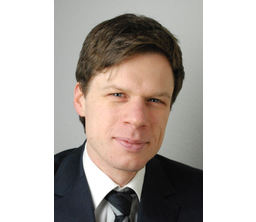INCREASE
Inclusive and Integrated Multi-Hazard Risk Management and Engagement of Volunteers to INCREASE Societal Resilience in Times of Changing Climates
Tehran, the capital of Iran, and the neighbouring city of Karaj are among the cities with the highest risk worldwide for natural hazards, especially earthquakes. At the same time, the growth rates of both cities have been exceptionally high during the last decades. Given the urbanisation dynamics, the large disaster risks and the damage in case of critical infrastructure failure - e.g. the 2017 earthquake in Tehran and the 2015 flash flood in Karaj, there is a high demand for warning and information in case of crisis, and advice on resilience and disaster preparedness.
To better meet this need in the future, the project will pursue three objectives: A warning and information app or social media content will be designed for improved risk information and communication, and a multi-risk toolbox as an assessment method for disaster risk and resilience.
At a Glance
| Category | Description |
|---|---|
| Research project | Inclusive and Integrated Multi-Hazard Risk Management and Engagement of Volunteers to INCREASE Societal Resilience in Times of Changing Climates |
| Partners |
FU Berlin University of Bonn - Institute of Geodesy and Geoinformation KIT - Karlsruhe Institute of Technology German Federal Agency for Technical Relief University of Würzburg empirica ag IÖR - Leibniz Institute of Ecological Urban and Regional Development German Committee for Disaster Reduction (Deutsches Komitee Katastrophenvorsorge e.V., DKKV) |
| Sponsors | Federal Ministry of Education and Research (BMBF) |
| Duration | Feb. 2021 – Jan. 2025 |
By developing frameworks in the form of integrated urban planning and disaster management plans, the INCREASE sub-project will also contribute to the implementation of the Sendai Framework - for Disaster Risk Reduction (SFDRR - Sendai Targets AE, in particular Target D for Critical Infrastructure) as well as the New Urban Agenda, the Paris Agreement of the UNFCCC and the Sustainable Development Goals (SDGs; in particular Targets 9-11). Overall, the results will contribute to disaster risk reduction (short-term) and strategic planning (long-term) in cities of Iran against multiple natural hazards and risks.
 Sponsored by the Federal Ministry of Education and Research
(Image: BMBF)
Sponsored by the Federal Ministry of Education and Research
(Image: BMBF)

